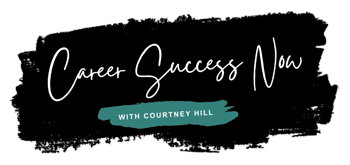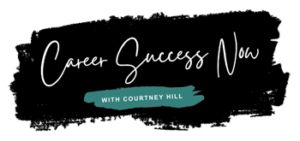I. Introduction
Navigating one’s career path can be a challenging and often overwhelming endeavor. With the rapid pace of changes in industries and job markets, individuals may find themselves at a crossroads, unsure of their next steps. This is where career coaching can play a pivotal role. Career coaching offers personalized guidance to help individuals define and achieve their career goals. In this comprehensive article, we will explore the concept of career coaching, its benefits, and how to determine if hiring a career coach is the right move for you.
A. Definition of Career Coaching
Career coaching is a professional service that assists individuals in various stages of their career development. A career coach helps clients identify their career goals, develop strategies to achieve them, and overcome any obstacles that may arise along the way. Unlike traditional job placement services, career coaching focuses on the individual’s overall career growth, including skill development, personal branding, and work-life balance.
B. Importance of Career Development
Career development is crucial for long-term professional success and personal fulfillment. It involves continuous learning, skill enhancement, and strategic planning to navigate one’s career path effectively. Investing in career development can lead to better job satisfaction, higher earning potential, and a more fulfilling professional life. Given the dynamic nature of today’s job market, career development has become more critical than ever.
C. Purpose of the Article
The purpose of this article is to provide an in-depth understanding of career coaching, its benefits, and how to assess whether you need a career coach. We will explore the roles and responsibilities of career coaches, the signs that indicate you might need one, and how to choose the right coach for your needs. By the end of this article, you will have a clear perspective on the value of career coaching and whether it is a worthwhile investment for your professional growth.
II. Understanding Career Coaching
A. What is a Career Coach?
A career coach is a professional who provides personalized guidance and support to individuals seeking to advance their careers. Career coaches work with clients to identify their strengths, weaknesses, goals, and aspirations. They help clients develop actionable plans to achieve their career objectives, whether it’s securing a promotion, transitioning to a new industry, or enhancing specific skills. Career coaches utilize various tools and techniques, such as assessments, goal-setting exercises, and strategic planning, to empower their clients.
B. Roles and Responsibilities of a Career Coach
Career coaches perform a range of roles and responsibilities to assist their clients. These include:
- Assessment and Evaluation: Conducting assessments to understand the client’s skills, interests, values, and personality traits.
- Goal Setting: Helping clients define clear and achievable career goals.
- Strategy Development: Creating a tailored action plan to achieve the client’s career objectives.
- Skill Development: Identifying areas for skill enhancement and recommending training or educational resources.
- Resume and LinkedIn Profile Optimization: Assisting clients in creating compelling resumes and professional online profiles.
- Interview Preparation: Providing coaching on interview techniques and strategies.
- Job Search Strategies: Offering guidance on effective job search methods and networking tactics.
- Ongoing Support: Providing continuous support and accountability to help clients stay on track with their career plans.
C. Types of Career Coaches
Career coaches often specialize in different areas to address specific career needs. Some common types of career coaches include:
- Executive Coaches: Focus on senior leaders and executives looking to enhance their leadership skills, navigate organizational challenges, and achieve higher levels of performance.
- Job Search Coaches: Specialize in helping clients with the job search process, including resume writing, interview preparation, and networking strategies.
- Career Transition Coaches: Assist individuals who are looking to change careers or industries, providing support in identifying transferable skills and exploring new career paths.
- Leadership Coaches: Work with individuals to develop their leadership capabilities and prepare for leadership roles within their organizations.
- Life Coaches: While not strictly career-focused, life coaches can help clients achieve a better work-life balance and personal fulfillment, which can positively impact their careers.
III. Assessing Your Career Needs
Determining whether you need a career coach starts with a thorough assessment of your current career situation and future aspirations.
A. Identifying Career Goals
One of the first steps in assessing your career needs is to identify your career goals. These goals can be short-term, such as securing a new job, or long-term, like becoming a leader in your industry. Reflect on what you want to achieve in your career and consider the following questions:
- Where do I see myself in the next 5 to 10 years?
- What specific roles or positions do I aspire to attain?
- What skills or qualifications do I need to reach my goals?
- What motivates me and brings me satisfaction in my work?
B. Recognizing Career Challenges
Identifying the challenges you face in your career is crucial for determining if you need external support. Common career challenges include:
- Difficulty in finding a job that matches your skills and interests.
- Feeling stuck or stagnant in your current role.
- Struggling with workplace dynamics or organizational changes.
- Uncertainty about career direction or goals.
- Difficulty balancing work and personal life.
- Experiencing job dissatisfaction or burnout.
C. Evaluating Personal and Professional Growth
Assess your personal and professional growth over the past few years. Consider whether you have:
- Made significant progress towards your career goals.
- Gained new skills or advanced in your field.
- Taken on new challenges or responsibilities.
- Experienced satisfaction and fulfillment in your career.
If you find that your growth has plateaued or you are not where you want to be, it might be time to seek the guidance of a career coach.
D. Common Signs You Might Need a Career Coach
Several signs may indicate that you could benefit from career coaching:
- You feel lost or uncertain about your career path.
- You lack confidence in your job search or career advancement strategies.
- You have been job searching for an extended period without success.
- You are considering a major career change but are unsure how to proceed.
- You feel overwhelmed by work-related stress or burnout.
- You want to improve your leadership skills or prepare for a promotion.
IV. Benefits of Working with a Career Coach
Hiring a career coach can offer numerous benefits, enhancing both your personal and professional life.
A. Personalized Career Guidance
A career coach provides personalized guidance tailored to your unique situation and goals. They take the time to understand your strengths, weaknesses, and aspirations, offering advice and strategies that are specifically designed for you.
B. Enhanced Job Search Strategies
Career coaches can significantly improve your job search strategies. They offer insights into the latest job market trends, effective resume writing techniques, and interview preparation tips. With their help, you can create a compelling job application package that stands out to potential employers.
C. Skill Development and Improvement
Career coaches help identify areas where you can improve your skills and provide resources for development. Whether it’s enhancing your leadership abilities, improving communication skills, or gaining technical expertise, a career coach can guide you towards the right training and development opportunities.
D. Increased Confidence and Motivation
Working with a career coach can boost your confidence and motivation. They offer encouragement and support, helping you overcome self-doubt and stay focused on your goals. This increased confidence can positively impact your performance and job satisfaction.
E. Networking Opportunities
Career coaches often have extensive networks and can provide valuable connections within your industry. They can help you build your professional network, opening doors to new opportunities and potential mentors.
F. Accountability and Support
A career coach provides ongoing support and accountability, helping you stay on track with your career goals. They regularly check in on your progress, offer feedback, and adjust strategies as needed. This support ensures that you remain committed and motivated throughout your career journey.
V. When to Consider Hiring a Career Coach
There are specific situations where hiring a career coach can be particularly beneficial.
A. Transitioning Between Careers or Industries
If you are considering a significant career change or moving to a different industry, a career coach can help you navigate this transition. They can assist you in identifying transferable skills, exploring new career options, and creating a strategic plan for your career shift.
B. Seeking a Promotion or Career Advancement
When aiming for a promotion or career advancement, a career coach can help you develop the necessary skills and strategies. They can provide insights into leadership development, effective communication, and organizational dynamics, increasing your chances of securing a higher position.
C. Experiencing Job Search Frustrations
If you have been job searching for a long time without success, a career coach can help you refine your approach. They can offer feedback on your resume and cover letter, improve your interview skills, and suggest new job search strategies to enhance your chances of landing a job.
D. Facing Work-Life Balance Issues
Struggling to balance work and personal life is a common issue. A career coach can help you identify the root causes of your work-life balance problems and develop strategies to manage your time and energy more effectively. They can also offer support in setting boundaries and prioritizing your well-being.
E. Dealing with Job Dissatisfaction or Burnout
Job dissatisfaction and burnout can have a significant impact on your overall well-being. A career coach can help you identify the sources of your dissatisfaction and explore potential solutions, whether it’s finding a new job, making changes in your current role, or developing stress management techniques.
VI. How to Choose the Right Career Coach
Selecting the right career coach is crucial for achieving your career goals. Here are some factors to consider when making your choice.
A. Researching Qualifications and Experience
Look for a career coach with the appropriate qualifications and experience. Consider their educational background, certifications, and years of experience in the field. A coach with a strong track record and relevant expertise is more likely to provide effective guidance.
B. Reading Reviews and Testimonials
Reading reviews and testimonials from past clients can give you insights into the coach’s effectiveness and style. Look for feedback that highlights the coach’s ability to provide valuable guidance, support, and results.
C. Understanding Coaching Methods and Approaches
Different career coaches may use various methods and approaches. Some may focus on assessments and strategic planning, while others may emphasize personal development and motivation. Ensure that the coach’s methods align with your needs and preferences.
D. Considering Compatibility and Communication Style
Compatibility and communication style are essential factors in a successful coaching relationship. Choose a coach with whom you feel comfortable and can communicate openly. A good rapport and mutual trust are crucial for effective coaching.
E. Evaluating Costs and Return on Investment
Career coaching can be a significant financial investment. Consider the costs involved and evaluate the potential return on investment. While coaching fees can vary, investing in a reputable and experienced coach can lead to substantial long-term benefits in your career.
VII. Case Studies and Success Stories
Real-life examples can illustrate the impact of career coaching and provide inspiration for your own career journey.
A. Example 1: Early-Career Professional
Emily, a recent college graduate, felt overwhelmed by the job market and unsure about her career direction. She hired a career coach who helped her identify her strengths and interests, refine her resume, and develop a job search strategy. With her coach’s guidance, Emily secured a marketing position at a reputable company, setting the foundation for her career growth.
B. Example 2: Mid-Career Transition
Tom, a mid-career professional, wanted to transition from finance to the tech industry. He worked with a career coach to identify his transferable skills and gain relevant certifications. His coach also helped him build a strong network in the tech industry. Tom successfully transitioned to a project management role in a tech company, achieving his career change goals.
C. Example 3: Executive-Level Coaching
Sarah, an experienced executive, aimed to advance to a senior leadership role. She hired an executive coach who provided insights into strategic leadership, organizational development, and executive presence. Sarah’s coach also helped her prepare for high-stakes interviews. With her coach’s support, Sarah secured a VP position at a multinational corporation.
D. Example 4: Overcoming Job Search Challenges
Michael, an experienced marketing executive, had been job searching for months without success. Frustrated and discouraged, he hired a career coach. His coach helped him revamp his resume, improve his interview skills, and expand his professional network. Michael’s renewed job search strategy led to multiple job offers, and he accepted a senior marketing role at a leading company.
E. Example 5: Achieving Work-Life Balance
Jessica, a healthcare professional, struggled with work-life balance and burnout. She sought the help of a career coach who helped her identify stressors and develop time management strategies. Her coach also guided her in setting boundaries and prioritizing self-care. Jessica’s improved work-life balance led to increased job satisfaction and overall well-being.
VIII. Potential Drawbacks and Considerations
While career coaching offers many benefits, it’s essential to consider potential drawbacks and set realistic expectations.
A. Financial Investment
Career coaching can be costly, and it’s important to assess whether you can afford the investment. However, consider the potential long-term benefits, such as increased earning potential and career satisfaction, which can outweigh the initial costs.
B. Time Commitment
Career coaching requires a significant time commitment, both in terms of sessions with your coach and the work you need to do independently. Ensure you are ready to invest the necessary time and effort to achieve your career goals.
C. Realistic Expectations
It’s crucial to have realistic expectations about what career coaching can achieve. While a coach can provide valuable guidance and support, the responsibility for implementing changes and achieving goals ultimately lies with you. Be prepared for a collaborative process that requires your active participation.
D. Finding the Right Fit
Finding the right career coach can take time and effort. It’s essential to research and interview potential coaches to ensure they are a good fit for your needs and preferences. Don’t hesitate to seek a coach who aligns with your goals and communication style.
IX. Alternatives to Career Coaching
If you are not ready to hire a career coach, several alternatives can support your career development.
A. Self-Assessment Tools
Self-assessment tools can help you identify your strengths, weaknesses, and career interests. Online assessments, such as personality tests and skills inventories, can provide valuable insights into your career path.
B. Online Courses and Workshops
Online courses and workshops offer opportunities for skill development and career advancement. Platforms like Coursera, Udemy, and LinkedIn Learning provide a wide range of courses on topics such as resume writing, job search strategies, and leadership development.
C. Mentorship Programs
Mentorship programs can provide valuable guidance and support from experienced professionals in your field. Seek out mentorship opportunities through professional organizations, alumni networks, or workplace programs.
D. Networking Groups and Professional Associations
Networking groups and professional associations offer opportunities to connect with peers and industry experts. Join relevant groups and associations to expand your network, gain insights, and access resources for career development.
X. Conclusion
A. Summary of Key Points
Career coaching is a valuable resource for individuals seeking to advance their careers and achieve their professional goals. It offers personalized guidance, enhanced job search strategies, skill development, increased confidence, and ongoing support. Assessing your career needs, recognizing when to seek coaching, and choosing the right coach are essential steps in this process.
B. Final Thoughts on the Value of Career Coaching
Career coaching can be a worthwhile investment, providing the support and resources needed to navigate your career path effectively. Whether you are transitioning careers, seeking advancement, or facing job search challenges, a career coach can help you achieve your objectives and enhance your professional growth.
C. Encouragement to Evaluate Personal Career Needs
Take the time to evaluate your career needs and consider whether career coaching is right for you. Reflect on your goals, challenges, and growth opportunities. Investing in your career development can lead to significant long-term benefits, including increased job satisfaction, higher earning potential, and personal fulfillment.
XI. Additional Resources
A. Recommended Books and Articles on Career Development
- “Designing Your Life: How to Build a Well-Lived, Joyful Life” by Bill Burnett and Dave Evans
- “What Color Is Your Parachute?” by Richard N. Bolles
- “The Pathfinder: How to Choose or Change Your Career for a Lifetime of Satisfaction and Success” by Nicholas Lore
B. Online Platforms for Career Coaching
- LinkedIn Career Coaching
- BetterUp
- Coach.me
C. Professional Organizations for Career Coaches
- International Coach Federation (ICF)
- Career Coach Academy
- National Career Development Association (NCDA)
By utilizing these resources, you can continue to refine your career strategy and enhance your professional journey. Understanding the importance of career coaching and making informed decisions can set you on the path to achieving your career aspirations.




